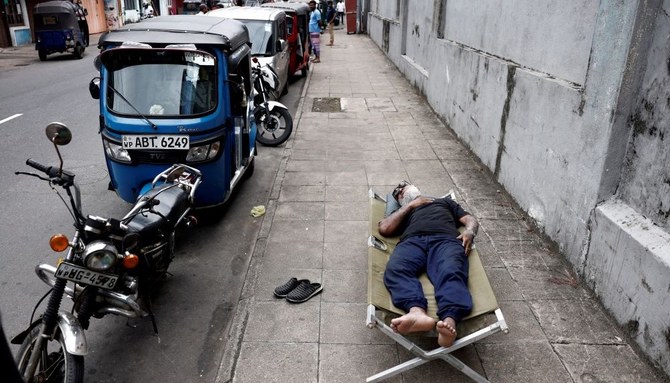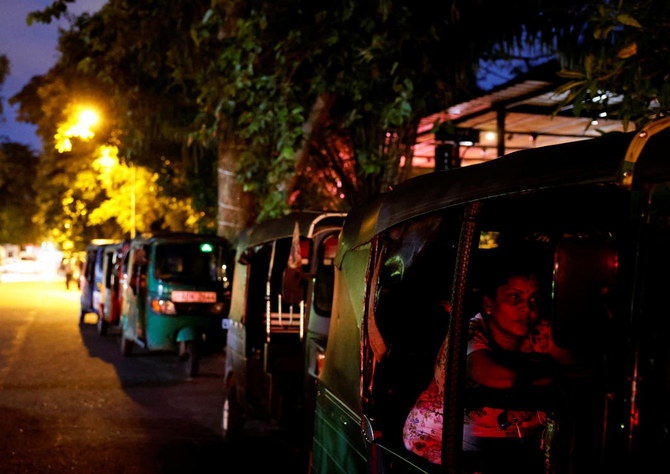COLOMBO: Sri Lanka’s military fired warning shots against “an unruly mob” after the group tried to break a queue at a petrol station, authorities said on Sunday, amid unprecedented lines for fuel that have been seen across the country struggling with its worst economic crisis in memory.
The island nation of 22 million people has lacked the foreign currency to buy essential imports and has defaulted on a multimillion-dollar foreign debt payment last month. As it seeks a bailout from the International Monetary Fund, the country is facing extreme shortages of basic necessities, with its existing stock of fuel projected to run out in days.
Some Sri Lankans had been waiting for days on end in queues to fill up their vehicles when an incident broke out in Vishwamadu, about 365 km north of Colombo, at a petrol station in the area on Saturday evening.
“The problem started at the petrol station. There was confusion as some were trying to break the queue,” Nihal Thalduwa, Sri Lanka police spokesperson, told Arab News.
The army and the police tried to maintain order at the fuel distribution point, Thalduwa said, adding that two civilians and three army officers were injured in the clash.
Military officers fired warning shots when the “unruly mob” tried to provoke them by pelting glass bottles and stones, a spokesperson said.
“An orchestrated attempt by an unruly mob, most of whom were confirmed drunk, to provoke army personnel manning a guard point in the Vishwamadu area in Mullaitivu was thwarted by firing several warning shots to the air,” army Spokesperson Nilantha Premaratne told Arab News.
The army said initial investigations confirmed that the incident was a deliberate attempt “to sabotage the goodwill and the cooperation that prevail between members of the Security Forces and the general public.”
Armed police and troops have been deployed to guard fuel stations in Sri Lanka for months, and Premaratne said the same operations will continue.
“Since the situation is normal, we continue with the same number of armed officers,” he said.
The crisis has led the government to declare a two-week shutdown of state institutions starting Monday in a bid to conserve fuel, while the Ministry of Education has ordered schools in the capital city to close for at least one week.
As the country faces a record high inflation of nearly 40 percent and lengthy blackouts, the long queues at petrol stations across the country also persisted. Among those who had to endure the long wait is Ashfaque Ahamed, who had to queue for about 23 hours over the weekend.
“I took turns to go to the washroom and for our meals with others in the queue,” Ahamed told Arab News. “It was a terrible experience in my life. I lost my day’s wage of LKR5,000 ($13.90), and I am so exhausted.”

















